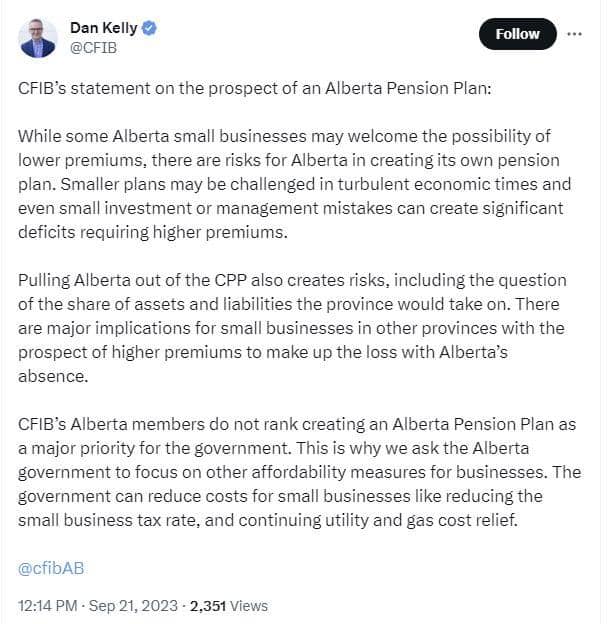There is a built in protocol for voluntarily leaving the CPP. We do not know the full details as there are conflicting opinions about it.The question, the uncertainty is no-one, absolutely no-one knows how the law will be interpreted…..This has never, ever, happened before…
That said, there are laws about divisions of assets. For divorce, companies that split off and more. They all, include provisions and methods for including “contributions”….and capital appreciation.
Don’t believe me?
Buy a house with someone. Or have a girlfriend move in, and then split 10 years down the road.
what was the house worth when she moved in. What contributions did she make for 10 years. What is the house worth today. She gets 50% of the appreciation from the day she moved in.
And there is zero, no, nada, arguing that for many many many many years. They have contributed far more, than they have received back. And, let’s not forget Boomers, who are starting to take from CPP. How many boomers in Ontario vs Alberta..They will absolutely be getting the short end for the next 30 years. And my guess is, They know that too.
And the electorate here, has taken that for granted ( like equalization), but even worse has done little more than throw them under the bus and turn blind eyes to a lot. Not unlike they did to central Ontario and more.
So I guess the question is. Do you really want that referendum to happen? . Even at the lowball end, it’s going to hurt a lot. Immediately and going forward, without them carrying everyone else.
Now trying to overestimate their level of their share of the pie is not going to resonate in any Court of Law. This pot is for all the Canadians other than Quebec who opted out and implemented their own QPP. The CPP realistically should not be politicized but lumped as a means for all the Canadians and not distinguishing it as a particular Provincial benefit!!







